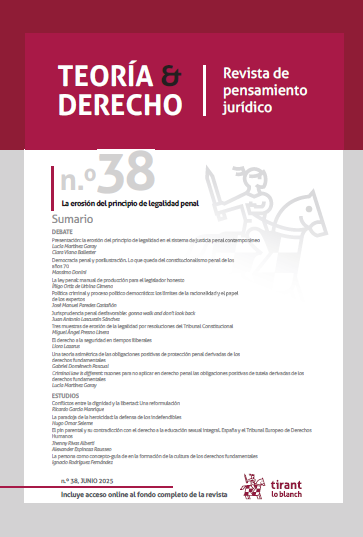The person as a guiding concept in the formation of the culture of fundamental rights
DOI:
https://doi.org/10.36151/TD.2025.128Keywords:
Person, voluntarism, nominalism, personalism, instrumentationAbstract
Without denying that the constitutional proclamation of individual rights was the product of specific revolutionary processes (and in this sense, of traumatic changes loaded with accidental and novel ingredients), this article argues that the culture of rights can only be understood on the basis of a particular ethos of freedom that comes from much earlier times and that can be studied, from Late Antiquity to the American Revolution, following the thread of the philosophical notion of person. This review of the intellectual genesis of rights can also serve to address the interpretation of our current Constitution, which defines fundamental rights as inherent entitlements to the dignity of the person at the service of the free development of the personality.
Downloads
Downloads
Published
Issue
Section
License
Copyright (c) 2025 Teoría & Derecho. Revista de pensamiento jurídico

This work is licensed under a Creative Commons Attribution-NonCommercial-NoDerivatives 4.0 International License.





















